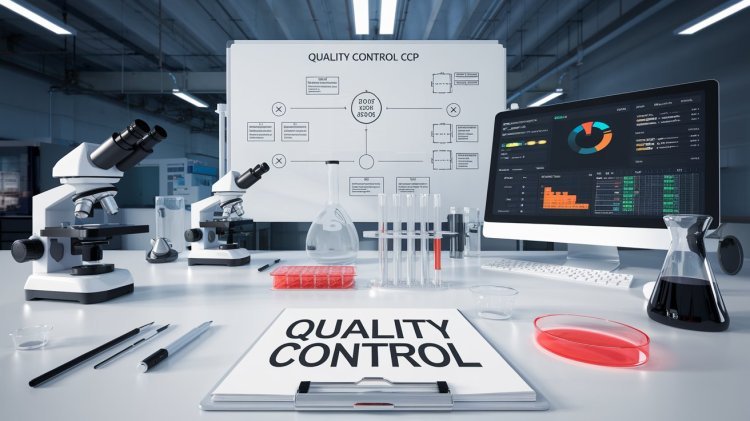Understanding Quality Control CCP: Ensuring Product Safety and Compliance
Quality Control CCP (Critical Control Points) helps organizations manage and mitigate risks in production, ensuring product safety and regulatory compliance. By identifying, monitoring, and controlling hazards, CCPs play a crucial role in protecting consumers and maintaining quality standards.

Maintaining quality standards is critical in many businesses, particularly food and pharmaceuticals, in order to assure consumer safety and compliance with regulations. Critical Control Points (CCP) are critical components of the Quality Control (QC) process, as they provide an organized strategy to detecting, managing, and mitigating risks throughout production. This post will discuss Quality Control CCP, its relevance, and how it protects product integrity.
What is Quality Control CCP?
Quality Control Critical Control Points (CCPs) are critical points in the manufacturing process at which hazards can be efficiently handled or removed to ensure product safety. This notion is important to the Hazard Analysis and Critical Control Points (HACCP) method, which is widely utilized in food production and other businesses that value quality and safety. CCPs are strategically located sites along the production line where hazards from pollutants, diseases, or dangerous behaviors are monitored and mitigated.
Key Steps in Identifying and Managing CCPs
- Conduct a Hazard Analysis: The first step in implementing CCPs is analyzing potential hazards at each stage of production, whether they are biological, chemical, or physical.
- Determine the Critical Control Points: After identifying potential hazards, specific stages are designated as CCPs. For example, cooking, cooling, or packaging might serve as CCPs in a food processing plant.
- Establish Critical Limits: Each CCP must have a critical limit, which is the maximum or minimum value that ensures hazard control. Exceeding this limit could compromise product safety.
- Monitor CCPs: Continuous monitoring is essential to ensure each CCP remains within its established limits. Automated systems and regular checks can help in tracking CCPs effectively.
- Implement Corrective Actions: When a CCP deviates from its critical limit, immediate corrective actions are necessary to bring it back within safe parameters. This could involve recalibrating equipment or adjusting procedures.
- Record Keeping and Verification: Accurate records allow for traceability and verification, ensuring the entire process complies with safety standards and regulatory requirements.
Why is Quality Control CCP Important?
- Consumer Safety: Ensuring CCPs are monitored and managed reduces the likelihood of unsafe products reaching consumers, protecting public health.
- Regulatory Compliance: Many industries, especially food and pharmaceuticals, are governed by strict regulations. Adhering to CCPs helps businesses comply with these standards, avoiding penalties.
- Reduced Waste and Recalls: By detecting and controlling hazards early in the production process, CCPs help in reducing waste, minimizing the risk of product recalls, and enhancing brand reputation.
- Efficient Quality Control: CCPs provide a focused approach to QC, enabling businesses to allocate resources efficiently and improve production consistency.
Examples of CCPs in Different Industries
- Food Industry: In a dairy plant, pasteurization acts as a CCP to eliminate harmful bacteria. Monitoring pasteurization temperatures ensures milk safety.
- Pharmaceutical Industry: In tablet production, the mixing stage is often a CCP. Ensuring correct ingredient ratios at this stage prevents inconsistent or ineffective medication.
- Manufacturing Industry: In electronics, testing circuits for voltage regulation may serve as a CCP to prevent faulty devices from reaching consumers.
Implementing Quality Control CCP in Your Organization
- Training and Awareness: Educate staff on the importance of CCPs, including how to monitor and manage them effectively.
- Utilize Technology: Many facilities use software solutions to automate monitoring, record keeping, and reporting, ensuring consistent oversight of CCPs.
- Continuous Improvement: Regularly review and update CCPs based on new hazards, technology advancements, and feedback from inspections or audits.
Quality Control CCPs play an important role in product safety and regulatory compliance. Understanding and executing CCPs allows firms to efficiently manage risks, protect consumers, and establish a reputation for excellence. As companies prioritize safety, CCPs will remain critical to meeting and maintaining high standards.
What's Your Reaction?
















